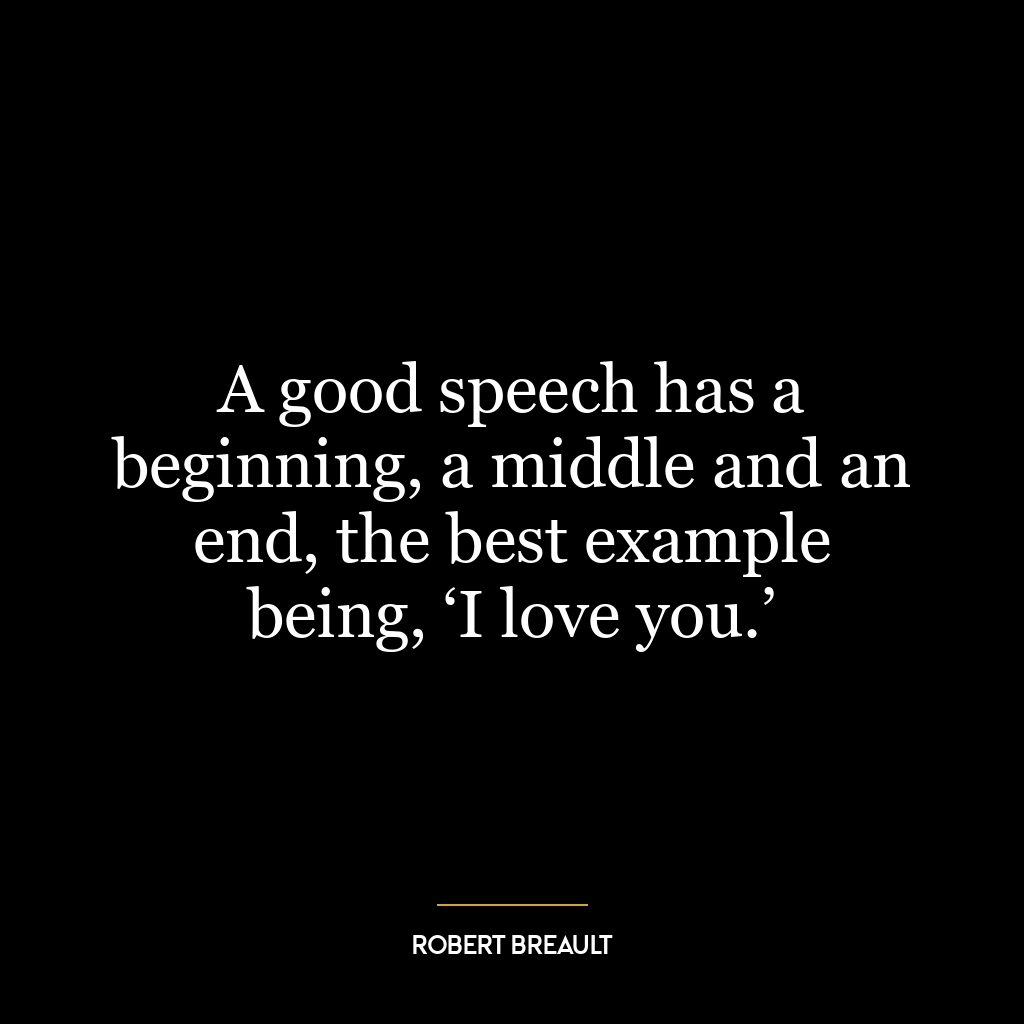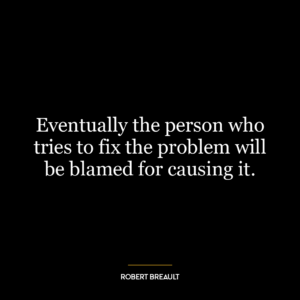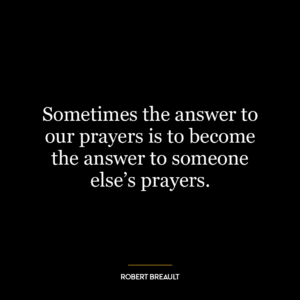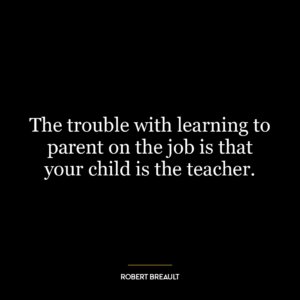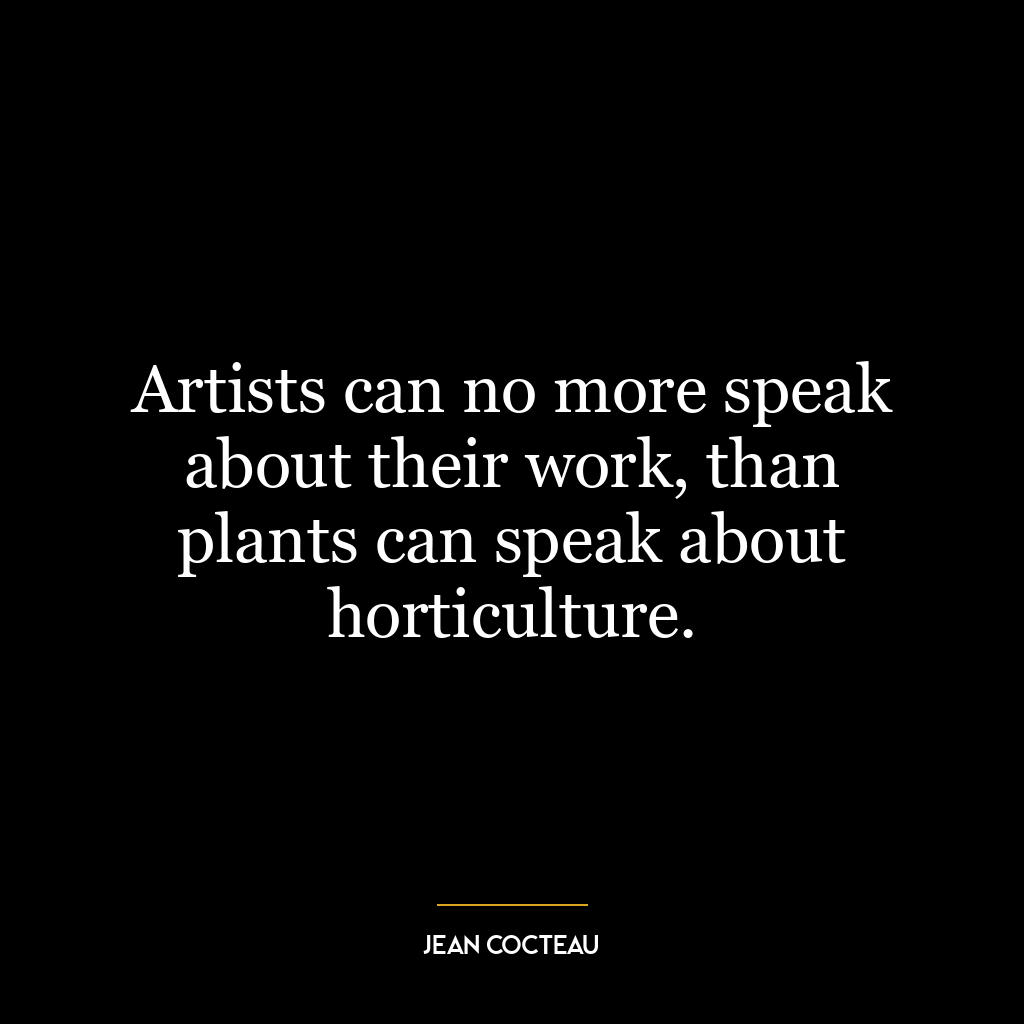A good speech has a beginning, a middle and an end, the best example being, ‘I love you.’
This quote illustrates the concept of simplicity and conciseness in interaction,emphasizing that a good speech,like a well-crafted story,should have a clear beginning,middle and end. The phrase ‘I love you’ is used as an example as it perfectly encapsulates this structure. It begins by addressing the person (‘I’), moves on to express an emotion (‘love’) and ends by identifying the object of this emotion (‘you’). Despite its brevity, it conveys a profound message.
In terms of depth, this quote suggests that effective communication doesn’t necessarily require complex language or elaborate arguments.Rather, what matters most is clarity of thought and expression. A simple but well-structured message can often resonate more deeply with audiences then verbose or convoluted speeches.
Applying this idea to today’s world where information overload is common due to social media and 24/7 news cycles, there’s an increasing need for clear and succinct communication.Whether it’s in politics where leaders need to convey their policies clearly to gain public support; in business where companies need to articulate their value proposition effectively; or even in personal relationships where expressing feelings honestly can build stronger bonds – simplicity and structure are key.
In terms of personal advancement too, mastering the art of concise yet impactful communication could be immensely beneficial. Whether one is delivering a presentation at work or negotiating a deal – being able to express oneself clearly while keeping listeners engaged can significantly boost one’s confidence as well as credibility.
this quote serves as both practical advice for improving our verbal communications skills as well as philosophical insight into how we might better connect with others at different levels – intellectually (through clear thought), emotionally (through sincere expression) and socially (through effective interaction).

